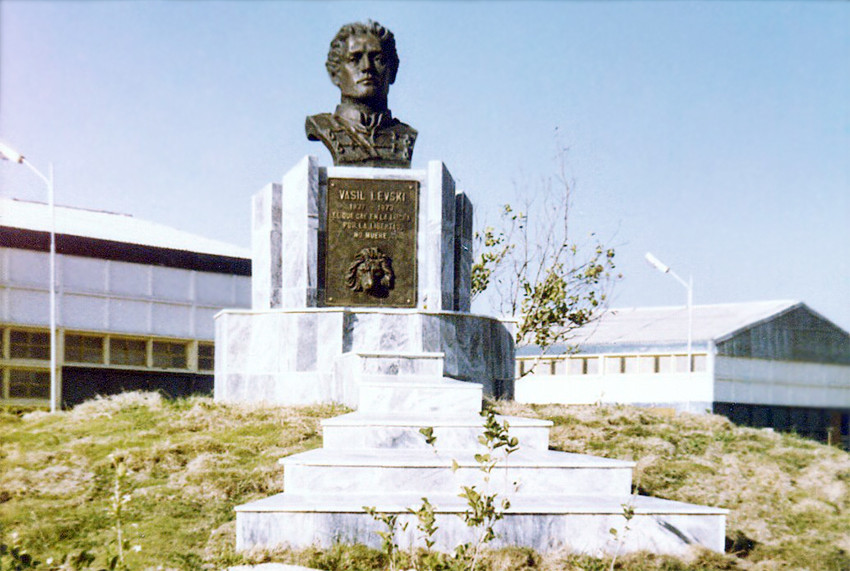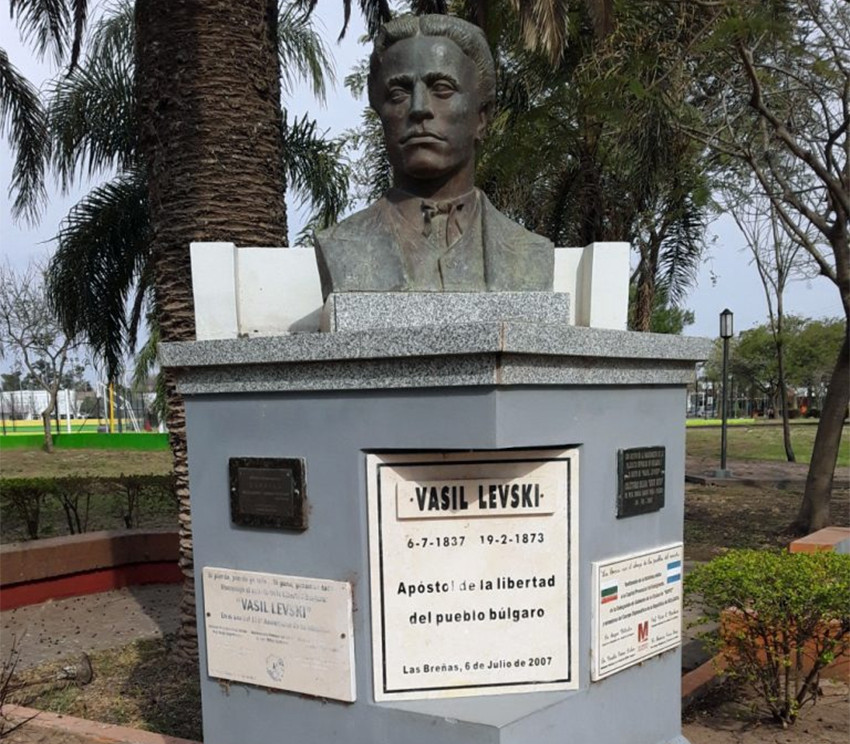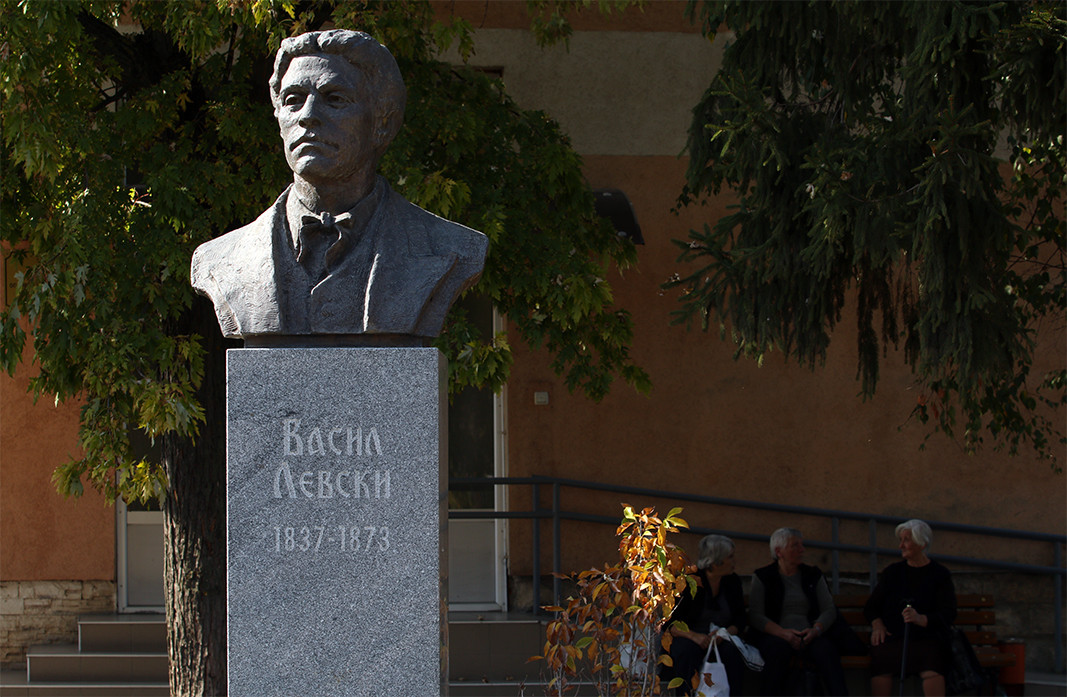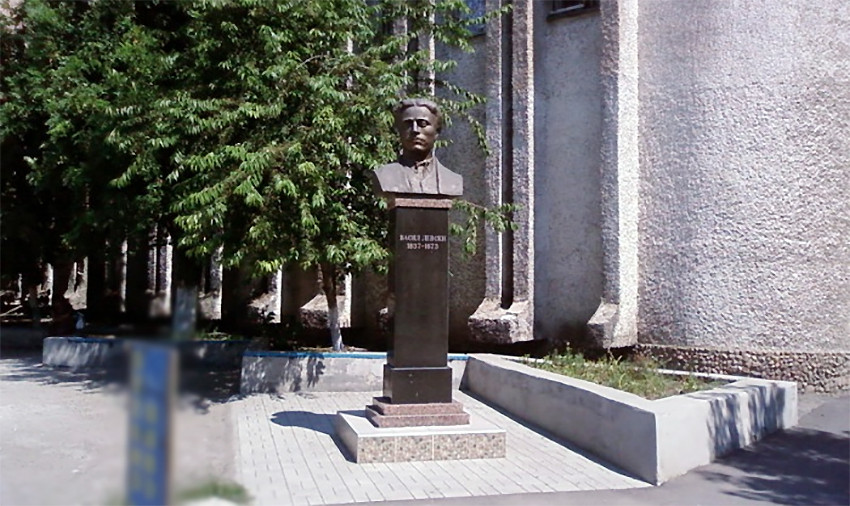A pure and sacred republic, equality of all before the law, freedom of speech, press and religion. These principles are the legacy left to us by one of the most significant figures in the history of Bulgaria - Vasil Levski, whose 150th death anniversary we mark in 2023. His memory has never lost its charisma under the vicissitudes of history. A recent national poll by the public broadcaster BNT placed him first in the ranking of the greatest Bulgarians of all time. Today, monuments to the Apostle in places near and far remind us of his work and the cause he stood for. Most of these monuments are located in the countries with the largest Bulgarian diasporas, such as Ukraine, the USA, Serbia, Moldova, Romania, etc., and were usually initiated by the local Bulgarian communities with the support of the diplomatic missions of this country.
The first monument to Vasil Levski outside Bulgaria was erected in 1981 in sunny Cuba on the initiative of Bulgarian specialists who at that time were building a factory in the city of Cienfuegos on the Caribbean coast. When the factory - named after Vasil Levski - was ready to be handed over to the Cuban side, the Bulgarians thought that one day the Cubans might rename it, so they had to leave something that would preserve the memory of Bulgaria in this place forever. This is how the idea for the monument was born, says Bulgarian engineer Todor Kuzmanov, a participant in the events. And indeed, the plant has long since been rechristened, but the Apostle's monument is still there today, with a bas-relief of a lion's head and a verse by poet and Levski's friend Hristo Botev "El que cae en la lucha por la libertad, no muere" / "He that has fallen fighting for freedom Chooses not death...".

Let us now move from Central America to South America, to Argentina, where the two most remote from Bulgaria monuments of the Apostle are located. The first memorial stands amidst the lush greenery of centuries-old trees and palm trees in a park in the prestigious Belgrano district, a favourite leisure area for residents of Buenos Aires.

The Bulgarian Embassy took the initiative to build it in 1997 on the occasion of the 160th anniversary of the Apostle's birth, with the joint efforts of the Vasil Levski General Bulgarian Committee, the Vasil Levski Foundation, with the participation of the Bulgarian community," Ivan Tsankov, secretary of the "Bulgarians in Argentina" civic association, told Radio Bulgaria. "There are many people in Bulgaria, he told our reporter Miglena Ivanova; - "We can say that Levski is an icon for those of us who were born in Bulgaria, but also for the majority of the Bulgarian community here, which consists of Argentineans with Bulgarian roots, already in the fourth generation. So the monument is visited not only on anniversaries, but at all times."
The second monument to the Apostle in Argentina is located in Las Brenhas, Chaco province, Ivan Tsankov says.

"The largest and oldest Bulgarian community lives there, since the first Bulgarian immigrants settled in the province of Chaco. The monument in Las Brenhas is newer. It is made of bronze on a stone pedestal and is facing a central boulevard. In 1998, representatives of the Bulgarian community in the town contacted the Vasil Levski Foundation in Sofia and told them of their desire to have a monument to the Apostle. After discussions, the Foundation decided to donate a bust of Levski to our compatriots in this remote region. Due to financial difficulties the monument was completed in 2007. The project was designed by arch. Miguel Angel Mihov, who has Bulgarian roots and is a representative of the municipal authorities. The official inauguration of the monument took place on 6 July that year. The blessing ceremony was performed by Omar Zenoff, a very prominent intellectual and religious figure of the community with Bulgarian roots."
And let us now come back to about 60 km from Sofia, to Tsaribrod, Serbia, where the closest monument to the Apostle is located. The beautiful, well preserved bronze bust, towering there in a central place in front of the municipal council building, is a work by prof. Valentin Starchev.

It was inaugurated in 2014 to commemorate the 141st anniversary of the Apostle's death. Tsaribrod was part of the former Bulgarian Western Outlands, but by virtue of the 1919 Treaty of Nuremberg it was annexed to Serbia, and in 1950 it was renamed Dimitrovgrad. According to the last census, the town's population is about 9,000. Estimates are that about 90 percent are Bulgarians, said Nebojša Ivanov, chairman of the board of the Bulgarian Cultural and Information Center "Tsaribrod".
"I was glad and very proud that the monument to Vasil Levski was inaugurated during my term as chairman of the municipality of Tsaribrod," Nebojša Ivanov told Radio Bulgaria.
The largest Bulgarian communities outside the country are those in Moldova and Ukraine. Bulgarians migrated in the 18th and 19th centuries, but because they lived closely together, they have managed to preserve their Bulgarian identity, traditions and language over the centuries. The Apostle's monuments make it easy to see where they are today - in the Moldovan cities of Chisinau and the villages of Parcani and Tvarditsa; in the Ukrainian cities of Odessa and Berdyansk.
The first bust of Levski in Ukraine was erected in 2007 in Berdyansk, now occupied by Russian troops, on the initiative of the local Society for Bulgarian History and Culture "Rodolyubie" with the support of the Association of Bulgarians there.

Thus today Vasil Levski unites all Bulgarian citizens around the world, regardless of age, faith, ethnicity and social background. And the monuments erected in honour of the Apostle are there not only to remind us of his legacy and sacrifice for the national cause, but also to measure our daily deeds against the standard of the national hero.
The book "Icons from the National Church Historical and Archaeological Museum" - a huge work of over 500 pages, with more than 700 published photographs and accompanying scientific articles, was officially presented a few days ago. The unique..
A humble military chaplain made his first contact with Bulgaria in 1921, arriving with the mission of searching for Italian soldiers who had disappeared without a trace during World War I. However, he did not remain indifferent to the fate of this small..
Beloslav is a small town on one of the branches of Varna Lake. Yet it is here, in this quiet little town, that the only preserved Bulgarian submarine – Slava – is anchored . It was decommissioned a long time ago, and has now been turned in one of..

+359 2 9336 661
